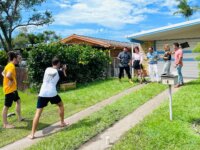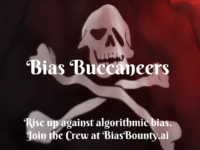Business Blasters encourages students to become job creators rather than job seekers.In 2021-22, 300,000+ students of grades 11 & 12 of 1000+ Delhi Government schools received seed funding of ₹2000 (about $25 USD) each for a business idea that they developed in a team with the objective of either earning profit or creating social impact. Most of these students belong to the most disadvantaged socio-economic communities.
Innovation Tag: Citizen Engagement
Case Study
Renovate or Rebuild: Using television to support the transition to sustainable housing in Australia

Renovate or Rebuild was a collaborative project that set out to increase the uptake of sustainable homes in the Australian residential sector. The show took an innovative approach to embed behavioural and building science into an engaging, yet informative and impactful TV series, that promoted and normalised sustainable homes. Research estimates this project could save Australians $600 million on their energy bills and would cost less than $1.60 for every tonne of greenhouse gas abated.
Digitalization of government often refers an individual project but should include on-going projects. Our city has been building the foundation that allows us to digitalize pubic services simultaneously. Shibuya collects city data and make it open so that innovators could collaborate with us. Secondly we educate our people. Shibuya provides digital devices to children and senior citizens. Thirdly, we let startups to test their product in the city. Finally we will institutionalize the actions.
Intergenerational fairness—the idea that we should meet the needs of the present without compromising rights of future generations or citizens—is a defining theme of our time. Although most politicians and citizens value fairness, society does not have a way to assess the impact we’re having on future generations and advocate for them. This Framework for Intergenerational Fairness contributes to this. The Framework provides a pragmatic solution, whether as a young citizen, or public…
During the Russian invasion of Ukraine, relief organizations and government agencies lacked data about events on the ground and struggled to mount an effective response. New methods of event detection were urgently needed. A research team comprised of country experts and computational social scientists created a Twitter-based event detection system that provides geo-located event data on humanitarian needs, displaced persons, human rights abuses and civilian resistance in near real-time.
Governments around the world are censoring the Internet, but how can we document, track, and respond to Internet censorship events? In 2022, the Open Observatory of Network Interference (OONI) launched the Measurement Aggregation Toolkit (MAT) which hosts one of the largest open datasets on Internet censorship to date. In real-time, new measurements are published from around the world, enabling researchers, journalists, and human rights defenders to track and respond to censorship worldwide.
Bias Buccaneers is the first non-profit algorithmic bias bounty organization. We organize competitions to engage a broad global community in identifying and fixing ethical problems in the algorithms all companies use. The long term vision of Bias Buccaneers is to create global expertise, standards, and verifiable talent in a nascent, but rapidly growing, field.
The Center for Hybrid Intelligence (CHI) has with partners such as UN’s AI4Good and the Danish People Climate Summit piloted a new AI powered game, “Crea.visions,” which allows the general public to collaboratively create and reflect on images of possible futures. Such accessible crowdsourcing of the concerns and solutions of the general public on both global and local complex socio-scientific problems could form a cornerstone in participatory democracy in the digital age.
#MyFrance2022 is the largest online citizen consultation ever conducted by a public media in France. It allowed one million French people to express their priorities and to engage in direct conversation with the candidates in the run-up to the presidential election. This massive and unprecedented consultation sought to respond to the democratic urgency of placing the voice of citizens at the heart of political debates during a democratic crucial period like the presidential campaign.
For 80 years we have been working for the well-being of people in disadvantaged areas, but they have rarely been asked how they expect a suitable and valuable public space to be. With our project, we create public spaces that, apart from roads, pavements and quality access, promote safety, comfort, life and the local factor of each territory. We innovate in the way in which the inhabitants of a sector transform their environment, beyond the rootless perception of the "experts".

